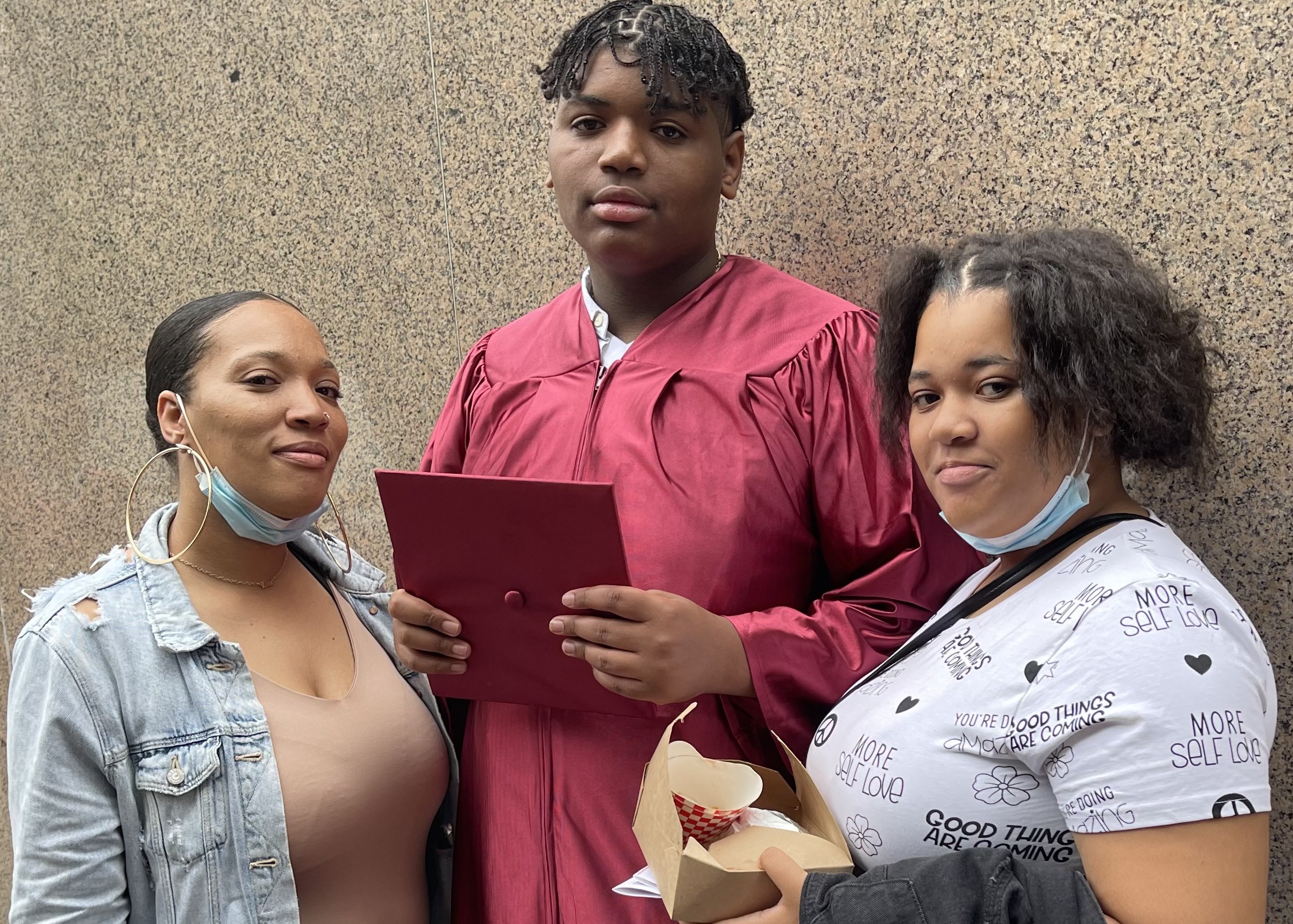
Shamara Kelly is an organizer at Rise and VOW and is the co-founder of Sisters in Purple.
My biggest fear has always been ACS taking my kids. I have embodied trauma from when I was a child—the system broke me and my siblings apart and took us away from our mom. I wasn’t going to allow that to happen to my two kids.
As a parent, I had my share of ACS cases when I was experiencing domestic violence, but because of my childhood experiences, I don’t believe ACS could have helped. ACS actually made things worse for me because caseworkers weren’t sensitive about my needs and didn’t understand the domestic violence (DV) situation I was in.
Over time, I realized that the ACS investigations weren’t about me. My cases were accusations towards the kids’ dad—our neighbors in the shelter reported they heard him slapping me and my babies crying. Neighbors heard our cries and did not intervene, but called ACS. I wish they knew about the trauma caused when ACS and cops are called and that they could have talked to me and shared any resources they knew about instead.
Every time I got a case, the kids’ dad said it was my fault. In reality, I was the one that kept things together for my kids. I had the world on my shoulders dealing with him. I did everything for him like I was his mom.
I remember the ACS worker telling me I needed to leave him based on the reports. At one point, the worker threatened to give my kids to my mom. I felt like everyone was against me—the system, my family—not realizing the danger I was in.
When ACS came, he was always right over my shoulder and he knew how to disguise what was going on. I knew if I made one wrong move, after the worker left there would be war between us. I felt eager to tell them about the situation, but I was afraid of losing my kids to the system, so I kept a lot inside. I was afraid that if asked for things my family needed, I would be penalized. I still wonder, if I had told ACS what was going on, would they have helped me and my kids or would they have separated us?
ACS kept showing up. Because I didn’t want my kids removed, I knew what to say, made every appointment and made sure ACS had anything they said they needed. We had five or six investigations that were closed and were unfounded—it happened too many times. I had to wake up and get away. I invested too many years in someone who didn’t care when ACS workers came around—he would curse at them and hover over me. I felt like he was okay with the system and wanted my kids to be apart.
But years after my cases closed, the kids’ dad and I were still together. He still pounded my head any time he got angry. I would say to him, “You’re gonna make me lose my kids.” He would respond that he didn’t care. He said he would call ACS himself. He tortured our family with ACS.
Surrounded by Love, Then Getting the Opposite
When I was young, I was surrounded by love.
For a while, my grandmother took care of me and my siblings when the system felt that was best—until my mom got her life situated (as they see it), which she did.
Finally, when I was 12, we were all back together. My mom was prepared and had a support system set up for her transition. She kept a small circle that consisted of me and my siblings, my dad and family. In our household, it was jokes and laughter. We never missed a meal.
My dad and mom argued, but it was never physical. Honestly, my mom always won. My dad would tell jokes, but he was strict and wanted better for us. I admired how he loved my mom and everything they went through together when they were young. I looked at the two of them and wanted that love.
Instead, at age 13, I got the opposite. The person who was supposed to be my knight in shining armor turned out to be a monster. I was young and naive, looking for what I saw at home—not realizing until later on that they were two completely different things.
My family was there for me, but did not know what to do but be there for me. My mom and dad had constant talks with me. My dad never liked the kids’ dad. He just didn’t think he was good enough for me. Sadly, he was right.
I didn’t understand how much danger I was in. If a survivor isn’t ready, they just aren’t ready. A person has to make a safety plan, have in their mind that the abuse is dangerous and never look back. When I was younger, I went back and forth too many times, thinking one day he would magically be the man I wanted. That would never happen.
I was scared of what people would think, but there finally came a time when I decided not to care and never went back.
Life Changed Rapidly
As they got older, my kids were bothered and would say things to me when we were walking to school. I remember my daughter at two years old saying loudly, “Ma, Daddy hit you last night.”
I would respond, “Mommy’s okay, please don’t say anything in school,” not realizing they were already informing the school therapist.
At 30, I started feeling like life had to be different, not just for me, but also for my kids, who watched everything and will one day raise their own families. My kids needed real happiness. We needed to leave their dad. I wanted them to understand that what they were seeing wasn’t normal. Violence in any form is wrong and we don’t allow anyone to take advantage of us.
My thoughts and mindset weren’t the same as when I was 13. I was tired of feeling like I wasn’t whole, restless of feeling unworthy. I wanted my daughter to understand that no man is to disrespect her emotionally, physically or mentally. I wanted my son to respect his queen at all costs and never allow any woman to disrespect him emotionally, physically or mentally—because women can be abusive, as well.
Life changed rapidly. I started cutting out all the negative things the kids’ dad would say, and most importantly, his physical actions, when I realized my kids were hurting. My kids are my everything. As their mom, my job is to protect them from harm, even if it’s their dad harming them.
The day I left, the kids’ dad had just come back from Beth Israel Mental Health, staggering in the house. Months prior, he was diagnosed with bipolar disorder. At that point, he was in and out of Bellevue Hospital and was torturing me and the kids.
On that day, he was violent like any other day—but I saw something in his eyes that I’d never seen. That last day, he had his hands around my neck. I was holding on to breathe. He was threatening to kill himself, asking me to kill him. His mental health had always been off and he had been abusive since we were young. I was tired—tired of him torturing us.
It was definitely time to leave. I gathered the kids and told him I was going to the store. I went to my best friend’s house and confessed what had been going on. She was shocked because she literally was upstairs while this was happening. She called the police and they came to get him out of my house. I appreciate her for being next to me every step.
Next, I called my baby sister. I could hear in her voice that she was worried. Five minutes later, my baby brother arrived to bring us to my mom’s house. As he was driving, I could see him out of the corner of my eyes. He was worried and wanted to get us to a safe space. I stayed with my mom until I got an order of protection and was ready to start my journey.
I went to the precinct to start the process of getting an order of protection with my best friend beside me. I still felt powerless—as a Black woman interacting with police, who I needed to protect myself from as well, trying to keep myself safe with just a piece of paper—but I advocated for myself to the best of my ability.
On the Right Journey
After we got away from their dad, I found out the kids had told the school therapist what was going on. I couldn’t be mad. They understood that what their dad was doing was wrong.
I thank God that the school therapist never made an ACS report. My kids always came to school and if there was a problem, it was me at the meetings. I was at every school event and show, so I had a good relationship with the school. I think they respected that and had empathy for me.
With the kids’ dad out of the picture, I could talk to the school about what was going on. This time around, I didn’t have to cover anything up, bite my tongue, look over my shoulder or lie about anything. Thankfully, the school was understanding and ready to step in for anything that was needed. They provided both of my kids with referrals to therapy. Later on, they also asked me to help them create safe spaces for students to talk about DV.
The kids’ dad didn’t want me to step into my power. He tried to silence me—but I shall not be silenced! Four years free from the abuse, I make my own decisions and rules. I can breathe. I can love on my family in each and every way that I want. It feels good to stand on my own, wear what I want, allow my voice to be heard and allow my kids to voice whatever they want.
My kids’ happiness now makes my heart proud. I can’t remember a time with their dad when they were happy, unless we were out. When we finally left, my son said to me, “Ma, you always been holding things down.” It reassured me that he understood and wasn’t upset at me. I knew I was on the right journey.
It Took Time to Be Ready
Being able to make my own choice about leaving was important—it’s a choice a survivor has to make on their own terms and not be forced to leave, as that would be traumatizing. It took me a while to see the light—17 years. I needed to be mentally, physically and emotionally ready and to be ready to fight even after leaving. I knew he wasn’t going to make it easy and feared a lot, but I couldn’t allow that fear to overcome me. I no longer fear anything.
My daughter is now 12 and watches my every move. My son, who is 14, looks just like his dad and he hates it. My son thinks he’s the man of the house. He feels he has to protect his sister. It’s a feeling I never wanted for them, but that’s the cards we were dealt. I support them with processing their feelings, building strong relationships and having good boundaries.
My kids saw their mother in a dangerous relationship, but they also saw me stand strong in the decision to leave that relationship. That reassured them that what we went through as a family isn’t normal. I always knew I needed to leave, I just had to get brave enough to do so. My kids needed it. I needed it. My family, my heart and my teenage self needed it.
My dad is no longer here, but he’s watching over me now and I know he’s proud. I thank the Most High for being patient with me. I swear everything I’ve been through was already written.
I am in a space now where I understand that a lot of the kids’ dad’s issues and behaviors stemmed from his childhood. He didn’t get the support he needed or have a safe space to speak about things he dealt with—things that had nothing to do with me. I hope he will take his mental health seriously and get the help he needs to better himself, if not for his kids, for himself. Forgiveness plays a major role in my healing, and I’m not 100% there yet, but I’m taking it one day at a time.
Mental health is a silent killer in the Black community that isn’t talked about enough, just like domestic violence. We have so much more work to do to make sure in Black communities and families, the people we surround ourselves with are taken care of. We need trauma-informed mental health services to be accessible to everyone, including men, survivors and children and these services need to be inclusive of people with disabilities. Some of these things exist but aren’t created and provided in ways that are effective.
Becoming an Organizer
I will always be grateful for the support of my family and friends—they were my safe haven. They allowed me to tell my truth without judgment. That’s what I needed—and something I didn’t get from ACS or NYPD. I craved a truly safe space for survivors who don’t trust the systems that were supposedly created to keep us safe.
I think about the times my voice wasn’t heard, my loud screams everywhere. When I think about the silent voices that lose their lives behind a monster, I flash back to my experiences. I never want anyone else to experience that. I want my experience to save someone’s life. At first, I feared speaking out, but I realized my story can help. I have connected with survivors who thanked me for speaking out and who became family.
There is a light at the end of the tunnel for me and I’m in that light now. I’m learning each day who I am as a sister, friend, mother, daughter and Black woman in a world that was built on my ancestors’ shoulders. I’m no longer physically fighting—now I’m fighting a system that isn’t safe.
I now advocate for survivors of domestic violence. I’m working to create the kinds of support networks I wanted and to be a resource who can connect survivors to whatever they need. My friends, family and sisters at VOW (Voices of Women) did that for me. When survivors leave, they often need clothing and financial help. Children who see abuse need to know they are loved. I don’t want young people thinking domestic violence is okay. My kids are proud of the work I do and even help out at some of my organizing and community events.
Stepping into my power and speaking out has allowed me to organize around issues that impact me. I’m a community organizer with VOW. I graduated from the Rise & Shine Parent Leadership Program in 2020 and became a Parent Organizer at Rise. I co-created Sisters in Purple, a coalition of survivors of DV around the country who want to see real change when it comes to laws, policies and systems that impact us. I have organized a baby shower for survivors, a community resource fair and a march to raise awareness and educate the community about domestic violence. I speak at press conferences about what survivors want and haven’t been able to get. I don’t do these things for recognition. It is important to me to advocate and to be able to give other survivors what wasn’t provided to me through the systems I turned to—a safe space and real support without strings attached.
I also sat on the ACS Parent Advisory Council for two years because I felt I needed to be the voice of survivors and uplift our concerns. I wanted ACS to take another approach when it came to domestic violence that isn’t harmful and triggering—but ACS workers shouldn’t be the people who come into your life when you are experiencing real-life issues. There should be other resources to go to that feel safe for families.
Survivors and community organizers are working on the front lines—they provide real support, listen to what survivors want and understand that every survivor’s story is different. Groups that are led by Black and brown survivors should be funded and survivors should be implementing policies that impact them. I want to change the way false and malicious reports toward DV survivors are handled. I want parents’ voices to be heard. We also need more shelter spaces for survivors who are single. Most importantly, I want people going through domestic violence to know that there is a way to get out and there’s nothing like being free.
I’ve learned through it all: Live for you. Live unapologetically. Today, I sit in my safe space knowing I’m free. Free to love and be loved. Free to love on my kids. Free to love my family. Free to be who the universe has set me to be. Free as a bird. Learning to love me at all costs.
>> See Shamara’s recent interview with Pix11: Bronx initiative to help domestic violence victims, survivors
Shamara’s Organizing and Community-Care Work
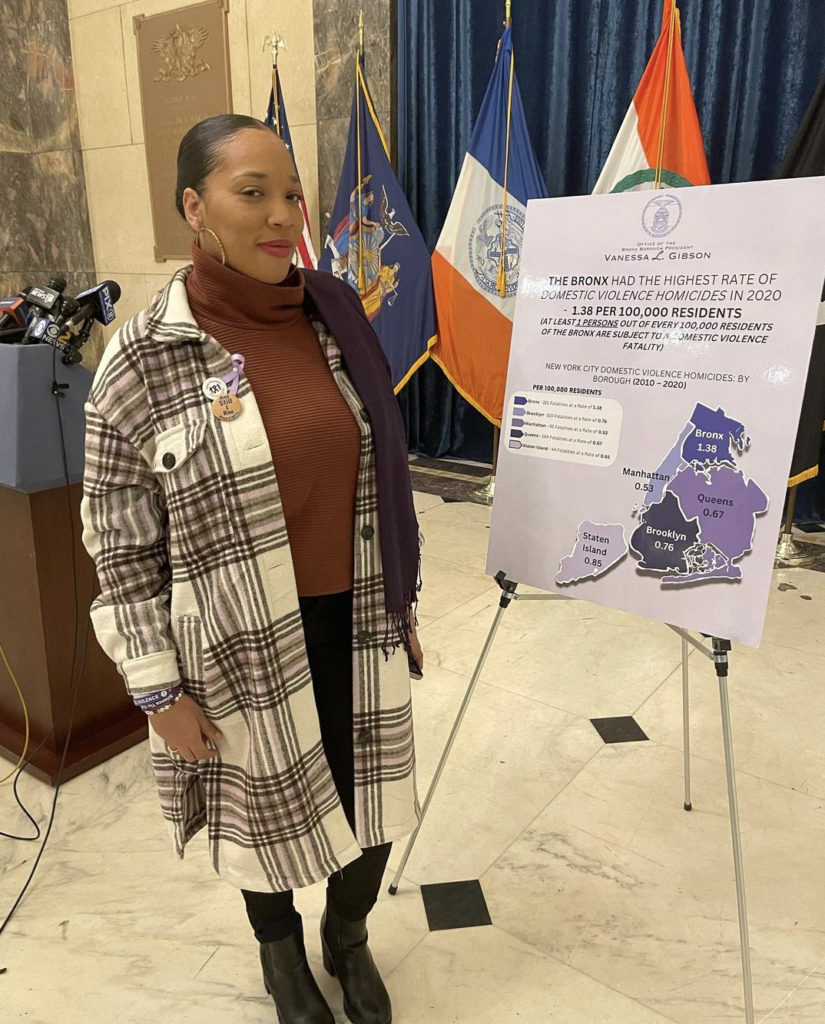
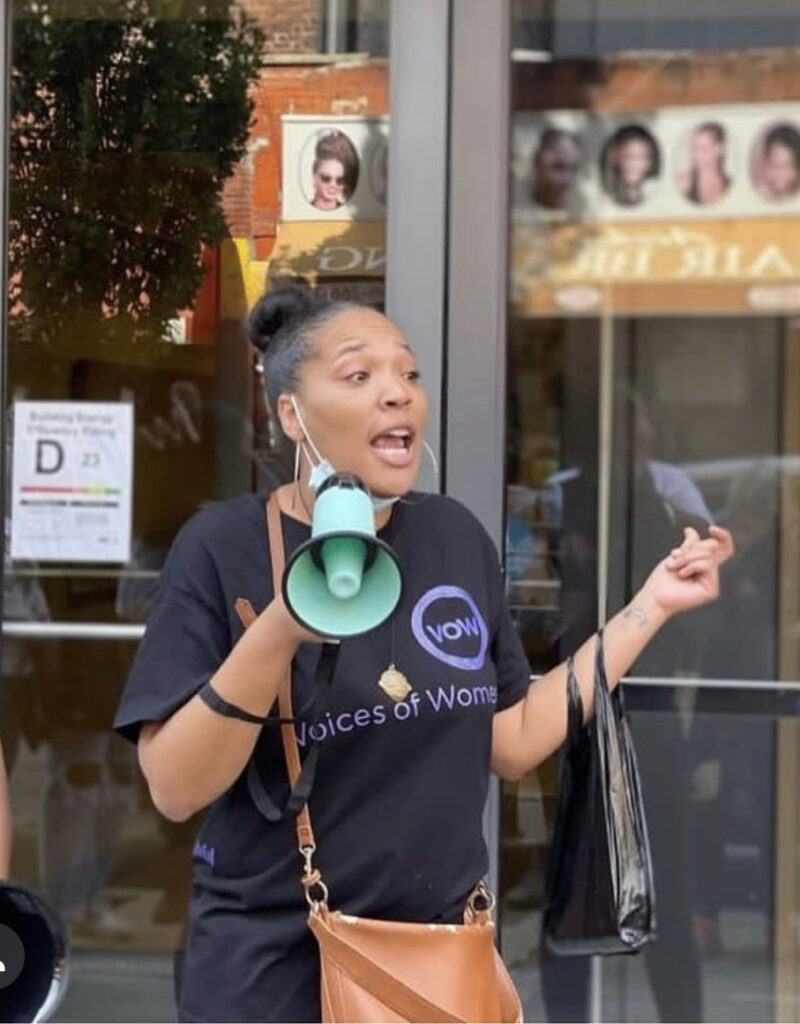
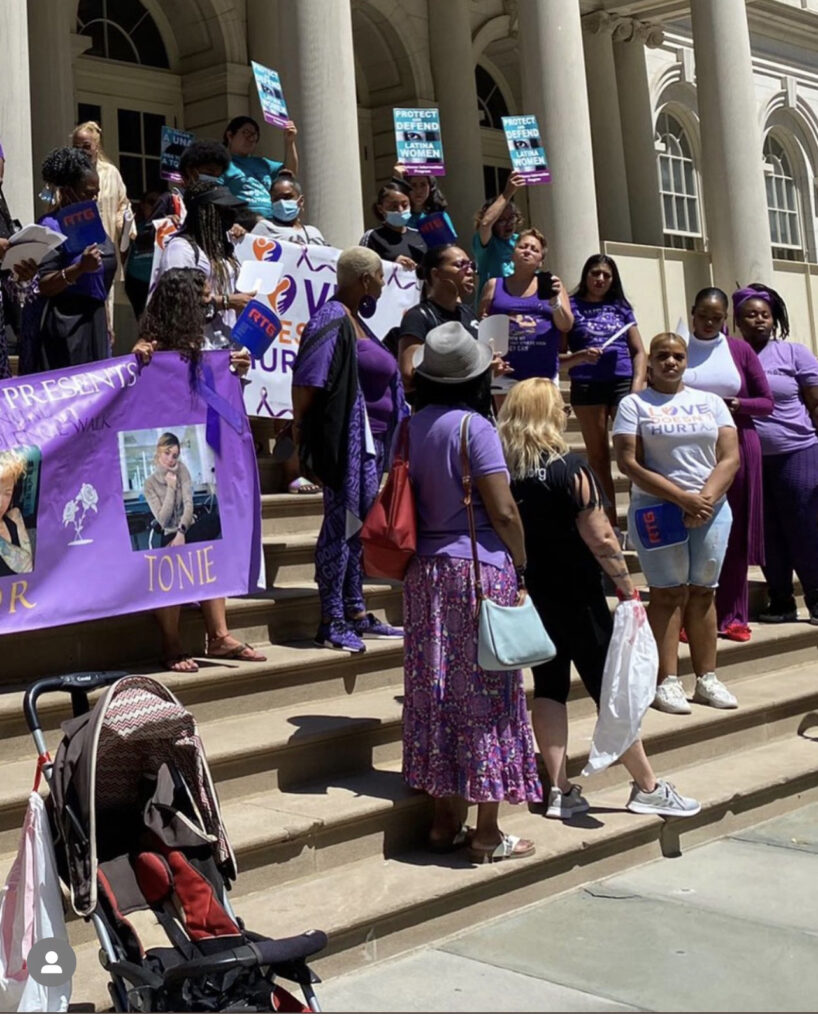
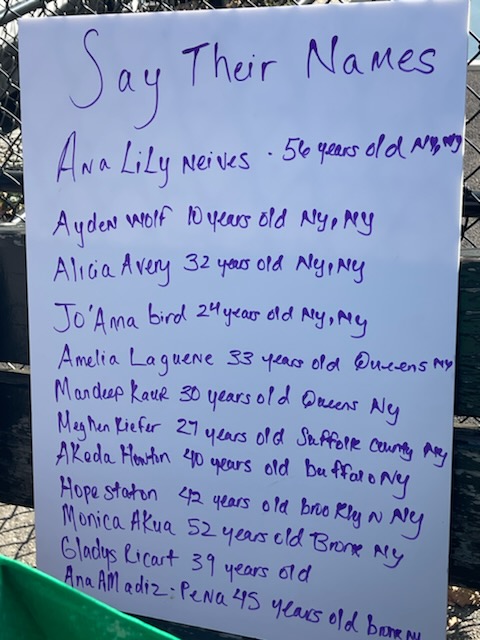
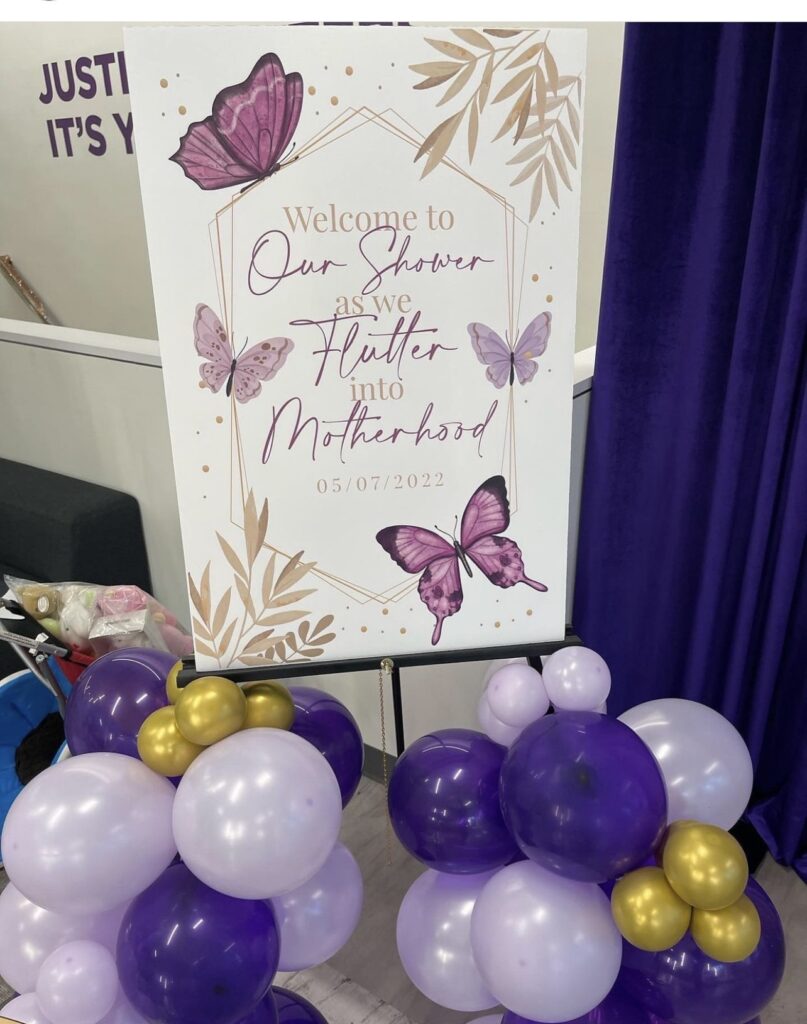
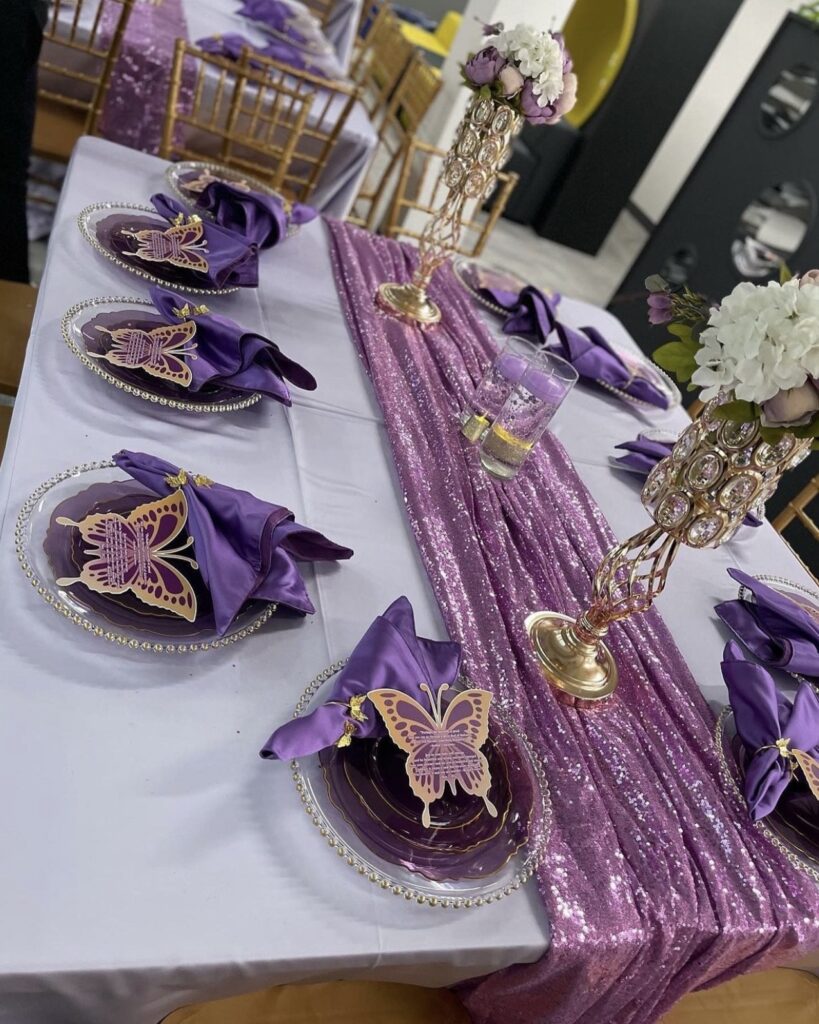
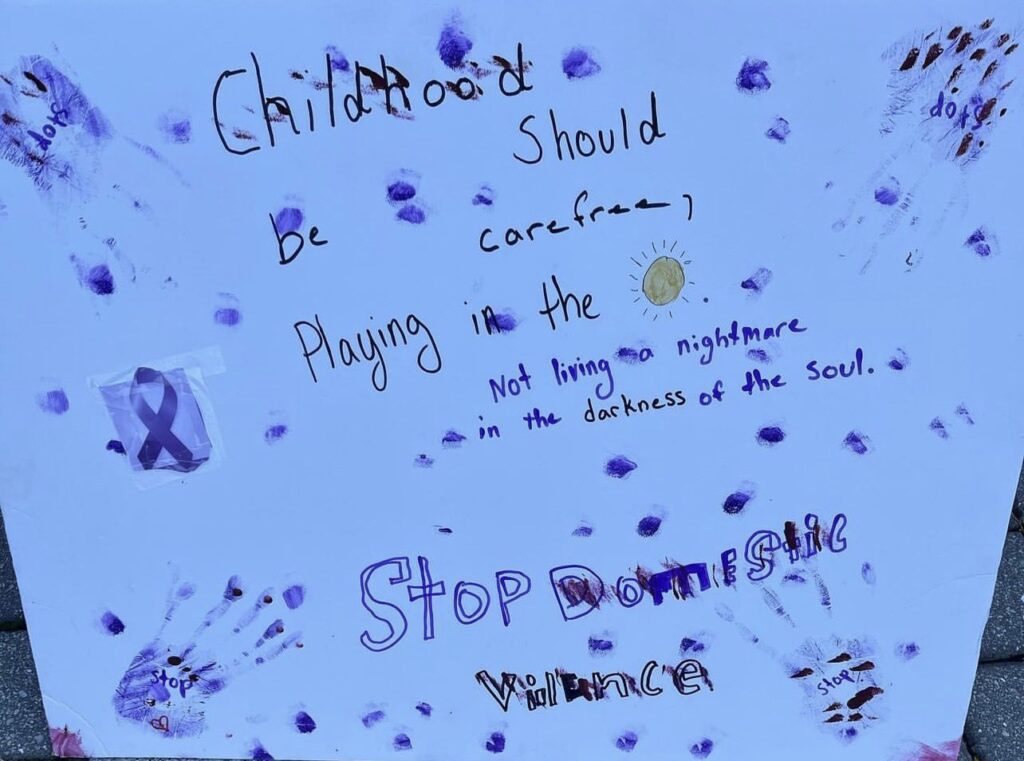
“I had to be the change I wanted to see for survivors. I turned my poison into power.”
—Shamara Kelly
